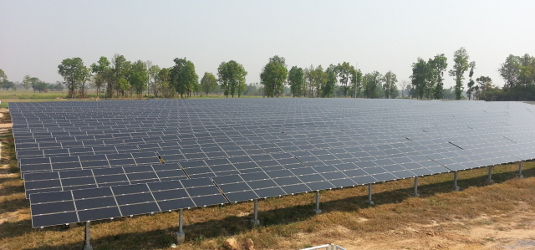Why Thailand is seeking Sino-Japanese cooperation in infrastructure
19 September 2018
Thailand’s Transport Minister Arkhom Termpittayapaisith said recently that Japan plans to team up with China to invest in Thailand’s infrastructure projects. Why does Thailand advocate cooperation between China and Japan? Can China and Japan explore a new model of mutual benefit and win-win cooperation on Southeast Asian high-speed rail projects?
Known as the “Land of Smiles,” Thailand has done well in handling major power relations. It plays delicate balancing acts when making decisions to purchase weapons or introduce foreign investment.
That’s why Thailand has proposed that a Japan-China consortium build a high-speed railway project which will link Suvarnabhumi, Don Mueang and U-Tapao airports. Recent years have seen intensified competition between China and Japan in bidding for Thailand’s high-speed railway projects. The proposal for China-Japan cooperation by Thailand is clearly aimed at seeking a new balance of interests between the two sides and winning itself more practical benefits.
Thailand also wants to share risks with China and Japan. The country is implementing Thailand 4.0, a bold and visionary 20-year national strategy, of which the Eastern Economic Corridor (EEC) is a flagship development project. The high-speed rail project linking three key airports is an important part of the EEC. The mega project, estimated to cost 224.5 billion baht (about $7.24 billion) and conducted under public-private partnership of 50 years, entails various risks. The Thai side hopes to draw on the strengths of both Chinese and Japanese enterprises to resolve the risks of the project.
Japan and China have their own advantages in developing economic and trade cooperation with Thailand and both have maintained cooperation with the Southeast Asian country. Japanese investment currently accounts for about 70 percent of the total foreign investment in Thailand, focusing on areas such as the automobile, electrical and electronics and service industries, while Chinese investment is quickly expanding in areas including equipment manufacturing, finance, agriculture, textile and mining. China is the biggest trading partner of Thailand now. Given the special relations between China, Japan and Thailand, Bangkok is an ideal place for Beijing and Tokyo to expand third-party market cooperation.
This year marks the 40th anniversary of the signing of the Sino-Japanese Treaty of Peace and Friendship and has witnessed a thaw in bilateral relations. During the visit to Japan by Chinese Premier Li Keqiang in May, the two sides signed the Memorandum on Cooperation between China and Japan in Third-Party Market and agreed to strengthen bilateral cooperation in the third-party market. This has created a favorable environment and provided a sound political foundation for the two to carry out cooperation on Thailand’s high-speed rail project.
The two parties also agreed to establish a cross-department working mechanism on promoting China-Japan cooperation in third-party markets under China-Japan economic high-level dialogue mechanism, and hold “Forum on China-Japan Cooperation in the Third-Party Markets” together with economic organizations.
On May 31, a seminar about China-Japan third-party cooperation on the EEC was held in Bangkok, during which representatives from governments and enterprises of the three countries discussed the possibility of cooperation.
China and Japan have their own strengths in high-speed rail construction in terms of capital, technology, talent, project management and construction materials. Enterprises from the three countries have begun to study how to draw on both sides’ strengths.
A new model of cooperation that is market-oriented and mutually beneficial and allows enterprises to play the leading role should be set up and be promoted to regions including Southeast Asia and Africa.
The author is a research fellow with National Institute of International Strategy, Chinese Academy of Social Sciences. opinion@globaltimes.com.cn
Source: http://www.globaltimes.cn/content/1120253.shtml
